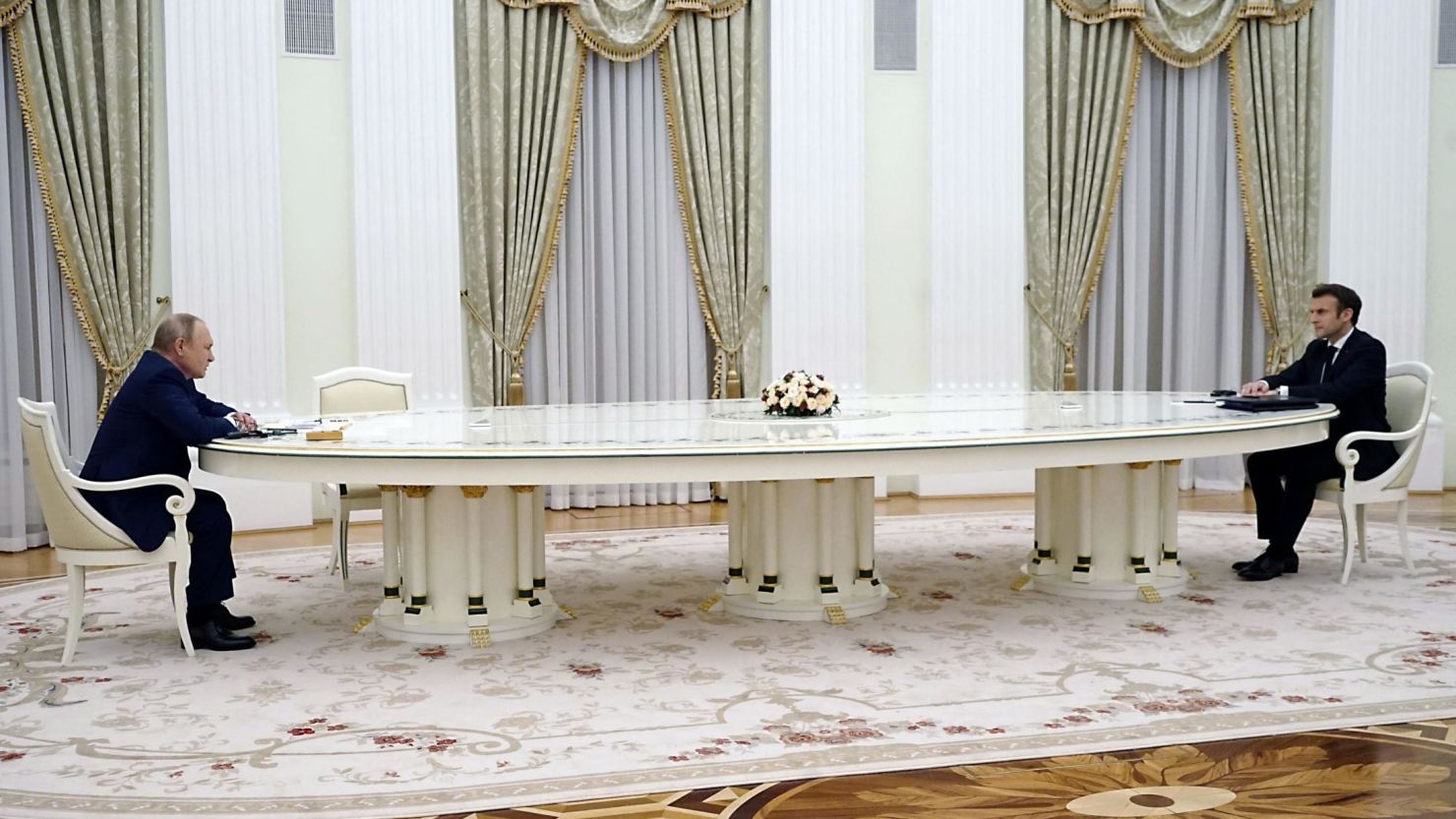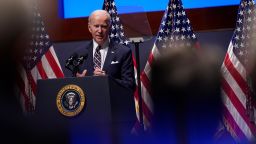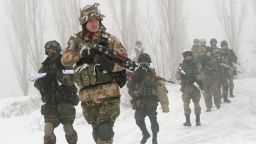There’s socially distanced, and then there’s French President Emmanuel Macron sitting on the opposite end of an enormous table during talks with his Russian counterpart Vladimir Putin at the Kremlin on Monday.
There is now insight as to why: The French leader declined the Kremlin’s request for a Russian Covid-19 test, the Elysee Palace said Thursday. On Friday, an Elysee spokesperson refused to comment on media reports that Macron did not want Russian doctors getting their hands on his DNA.
The two men spent more than five hours sitting at the table – estimated to be up to 20 feet (six meters) long – for head-to-head talks on how to diffuse a potential conflict in Ukraine.
Macron was seeking to stop the massive Russian military buildup of more than 100,000 soldiers from turning into war and to assuage Russia’s security grievances, which include demands that Ukraine and Georgia be blocked from ever becoming members of NATO and for the alliance to draw down troops in Eastern Europe.
But the table itself drew significant attention, with its length shocking many observers and triggering a wave of internet memes.
On Friday, an Elysee spokesperson explained the French side “judged that the conditions that allowed for a shorter distance [between the presidents during their talks] were not acceptable to us and we chose the other option proposed by the Russian [Covid-19] protocol. That is all.”
“The president has of course always done what he has to do when he travels,” the spokesperson said. “The question is just based on the test conditions.”
As to the Reuters report about Macron not wanting Russia to have access to his DNA, the spokesperson said it “did not merit launching into particular fantasies.”
While refusing to provide details of the test conditions, the spokesperson said there were concerns about who would do the test, how the tests would be taken and their timings.
“The president has doctors who define with him the rules that are acceptable or not in terms of the health protocols relating to him. Period,” the Elysee spokesperson added.
The conditions that would have allowed a meeting with less distance imposed a Russian health protocol which “seemed neither acceptable nor compatible with our agenda constraints,” the Elysee Palace said on Thursday.
The Kremlin confirmed that the French side was unwilling to comply with the Kremlin Covid-19 testing protocol that would have led to a more intimate setting.
Asked if Macron decided not to take a PCR test administered by Russian doctors, Kremlin spokesperson Dmitry Peskov told reporters Friday: “Yes, indeed.”
“In some situations, Putin meets with his guests sitting very close by one another, they shake hands,” he said. “With others, negotiations are held at a table, at a distance of approximately six meters.”
Peskov added: “This is due to the fact that some leaders follow their own rules and they do not interact with the host side in sharing tests. We treat this with understanding, this is a normal global practice but, in this case, there is a protocol of additional measures to protect the health of our president and our guests as well. A larger distance is applied.
The meeting ended with the Kremlin pouring cold water on reports that the two leaders had agreed to de-escalate the tense standoff on Ukraine’s border, where tens of thousands of Russian forces have massed in recent months, drawing warnings from Western officials of an impending invasion.
As Putin tests the West’s resolve, Macron has thrust himself to center stage, taking former German Chancellor Angela Merkel’s place as leading mediator for Europe as he readies himself for a reelection bid at home. Currently at the helm of the European Union’s rotating presidency, Macron has spoken several times per week with Putin, and placed his third phone call in a week to US President Joe Biden on Sunday evening.
CNN’s Eliza Mackintosh contributed to this report.



